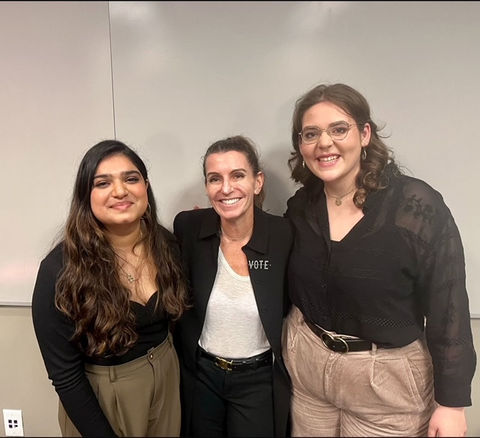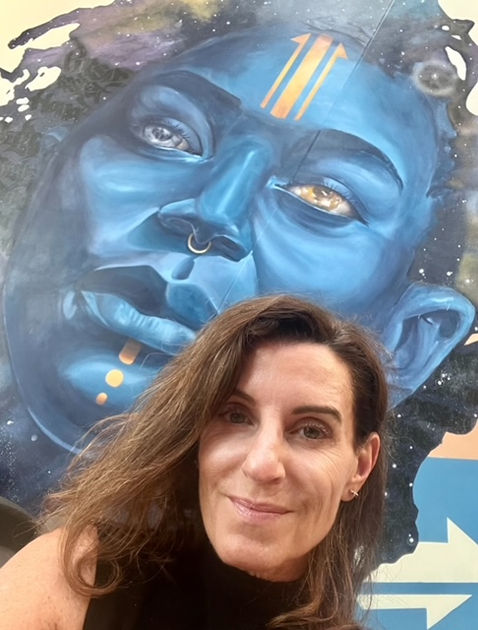(click on my name to hear it pronounced)
rethink, respond, resolve
I help businesses and organizations manage conflict, recognize differences, address challenges, and create environments where people want to engage and work.
I teach people how to stand up for themselves without knocking others down™ and ask for what they need to succeed.

welcome
I'm Israela Adah Brill-Cass, Esq., a seasoned ombuds, attorney, mediator, facilitator, trainer, and consultant with over two decades of experience. My journey in conflict resolution and negotiation led me to launch fixerrr, a company dedicated to helping individuals and organizations rethink, respond, and resolve their challenges. I've had the privilege of teaching and leading trainings at esteemed institutions like Harvard's School of Public Health, MIT, Tufts, Rhode Island School of Design, Wesleyan University, and Emerson College, and have been recognized as a New England Super Lawyer.
conflict resolution
Conflict is normal, it's natural and it's part of the ebb and flow of everyday communications. Why then is conflict so hard to manage? Because we aren't hard-wired to do it well (you can blame our fight/flight instincts for that) plus, our brains aren't all wired the same so sometimes a simple miscommunication can become a conflict.
As a conflict and communication professional (for over 20 years) I can help. How?
1
ombudsing
“An ombuds provides confidential, informal, independent and impartial assistance to individuals through dispute resolution and problem-solving methods such as conflict coaching, mediation, facilitation, and shuttle diplomacy. The ombuds responds to concerns and disputes brought forward by visitors to the office and may convey trends, systemic problems, and organizational issues to high-level leaders and executives in a confidential manner.”
-International Ombuds Association Definition
I'm an independent ombuds and I serve as the Faculty and Staff Ombuds at Wesleyan University and Clark University and as the Ombuds for The Broad Institute of MIT and Harvard. I also provide contract and conference ombudsing.
2
training
When you don't have the skills you need to stand up for yourself without knocking others down™, ask for what you need to succeed, or do conflict better, training can help. Whether it's a group of 5 or 500 (well, 500 would be a lot but I'm willing to give it a try), training in conflict communications, negotiation, recognizing difference and managing bias, creating inclusive workplaces, giving and getting productive feedback, or something else I haven't thought of training folks how to do yet, I can tailor a workshop or a series of workshops to fit your time, team and budget.
These are some of the organizations that have trusted me with their trainings for and I can proudly say have come back for more.
3
mediation & facilitation
Sometimes having a neutral - someone from outside of the organization who has no history with the folks involved, no agenda, and no stake in the outcome - provide a confidential space for structured conversation(s) is the key to getting things back on track, conflicts resolved, and ensuring that organizational and individual needs are met. Mediation is a confidential, self-determined, structured conversation that's guided by a neutral mediator (that'd be me). Facilitation is a process by which stakeholders, departments or groups are brought together for structured conversations to achieve defined goals like managing a transition, identifying shared values and mission, strategic planning, getting consensus on how to address a specific problem, or just rebuilding and strengthening team communications with the help of a neutral facilitator (that'd also be me, sometimes with the help of trained co-facilitator). Because these processes are confidential, I can't share who's used them but I can tell you that some of my clients in the other two columns also use me for both mediation and facilitation and hopefully that's saying something.

my mission
In my more than 20 years as a conflict and negotiation professional my goal has always been the same: to help individuals and organizations recognize options, do conflict better, learn and use the tools that help people ask for what they need to succeed, and help everyone stand up for themselves without knocking others down™.
what clients say
human user manuals (HUMs)
In order to help recognize and include neurodiverse employees - and really everyone - in workplaces, I offer this version of a "Human User Manual" that I created and shared at the International Ombuds Association's Annual Conference in April, 2023. The information provided in these forms can be shared as appropriate with team members and in particular supervisors, to help bridge gaps in communications which are often the source of workplace conflicts and perceived poor performance. Using this form with everyone in a workplace creates shared meanings and expectations which can also help them bring their more full selves into the workplace, and when it comes right down to it, isn't that what an inclusive workplace is all about?





























